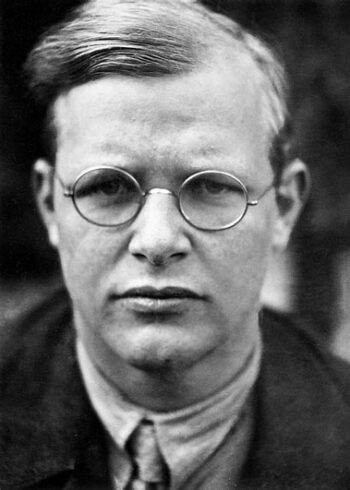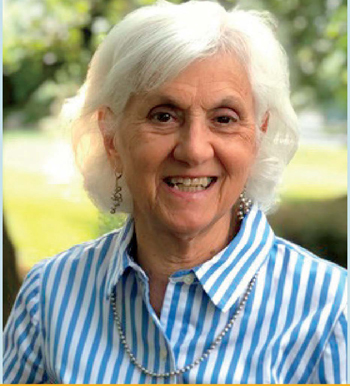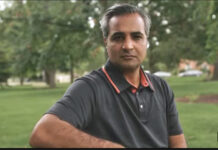By Charles Gardner —

With the 80th anniversary of Dietrich Bonhoeffer’s martyrdom on April 9th, the fresh challenge to Christian faith posed by a new movie on the great man continues unabated.
I have now been alerted to a paper¹ about the German theologian who stood up to the Nazis written in 2021 that had somehow escaped my attention at the time.
Penned by a dear American friend, Dr Theresa Newell, she points out the extraordinary anomaly that in 1933, when Hitler came to power, Germany’s 525,000 Jews represented less than one per cent of the country’s 66 million population. So why did they present such a threat?
Perhaps little known was the fact that the Lutheran Church had as many as 150 ordained pastors with Jewish blood, who were thus excluded from ministry in the wake of Hitler’s Aryan edict (forbidding government employment to non-Aryans). Also perhaps little known was that many of the Lutheran pastors were paid by the government, which not surprisingly led to such willing compromise as National Socialist principles were forced on the Church.

Full of courage and conviction, Dietrich was only 14 when he announced to his family that he was going to be a theologian and had a PhD by the time he was 21.
But Dr Newell is rightly puzzled as to why he has not been accepted as a Righteous Gentile by the Holocaust Museum at Yad Vashem in Jerusalem, and wonders whether it was because they felt he was only concerned for Jewish believers (in Christ) and clergy.
But her research completely refutes this claim. “He declared it was the Church’s duty to stand up for the Jews.” And in 1935 he told students of the Confessing Church, which had broken away from the national church over the issue: “Only he who cries out for the Jews can sing Gregorian chants.”
In 1940 he wrote that the Lutheran Church had “not raised her voice on behalf of the victims… and is guilty of the deaths of the weakest and most defenseless brothers of Jesus Christ”. In the end, one-third of European Jewry – six million precious souls – perished amidst the deafening silence.
Bonhoeffer meanwhile helped a group of Jews escape to Switzerland, as depicted in the film, and once preached on Psalm 58, saying: “It is an evil time when the world allows injustice to occur and keeps silent.”
Dr Newell writes: “Bonhoeffer presents a challenge to our day. Will Yeshua find faith when he returns to the earth in our generation? Will I stand with the Jews, saved or unsaved, in this day of rising antisemitism? Will I declare that my Jewish brethren in the faith and Gentile believers are fully one in Christ?”
Interestingly, she quotes Reformation leader Martin Luther who, in stark contrast to his antisemitic rants of later years, wrote in 1523: “If the Apostles, who were also Jews, had dealt with us Gentiles as we Gentiles deal with the Jews, there would have been no Christians among the Gentiles. But seeing that they have acted in such a brotherly way towards us, we in turn should act in a brotherly way towards the Jews in case we might convert some.”
There’s a hint in that last phrase at the excuse often made for his later antisemitism being that his patience had run out over their non-responsiveness to the gospel; in other words, that Luther was only interested in their conversion rather than their overall welfare.
Tragically, one of the defendants at the 1946 Nuremberg trials of leading Nazis, Julius Streicher, suggested that Luther would have been in the dock for his views had he been alive at the time.
As for Bonhoeffer, it was his connection to the conspirators of a failed assassination attempt on Hitler in July 1944 that led to his imprisonment and death.
To state the obvious, today’s antisemitism is not restricted to Germany and, 80 years on, Bonhoeffer remains a brilliant beacon of light challenging ships of state, and Christians too, to steer clear of the dangerous rocks of hell and damnation awaiting those who stray from God’s path.
The trauma and pain inflicted on God’s chosen people by the Nazis is not just history. There are almost a quarter-of-a-million people still living with the direct consequences of the Holocaust including a man now living in London who grew up in a French forest, having been left there by a Gentile family in an attempt to save his life during the Nazi occupation.
Together with a few other orphans, he lived in a hollow under a great tree, drinking rainwater and foraging for truffles. One by one, all the others died, but he survived, rescued by General Patton’s troops at just ten years old.²
Believers from Jews for Jesus are reaching out to him, but it is hardly surprising that he struggles with the concept of coming to faith in a loving God. Please pray for him.
1 Olive Press Research Paper published by the Church’s Ministry among Jewish people
2 Quoting Jews for Jesus UK Director Boris Skvortsov



